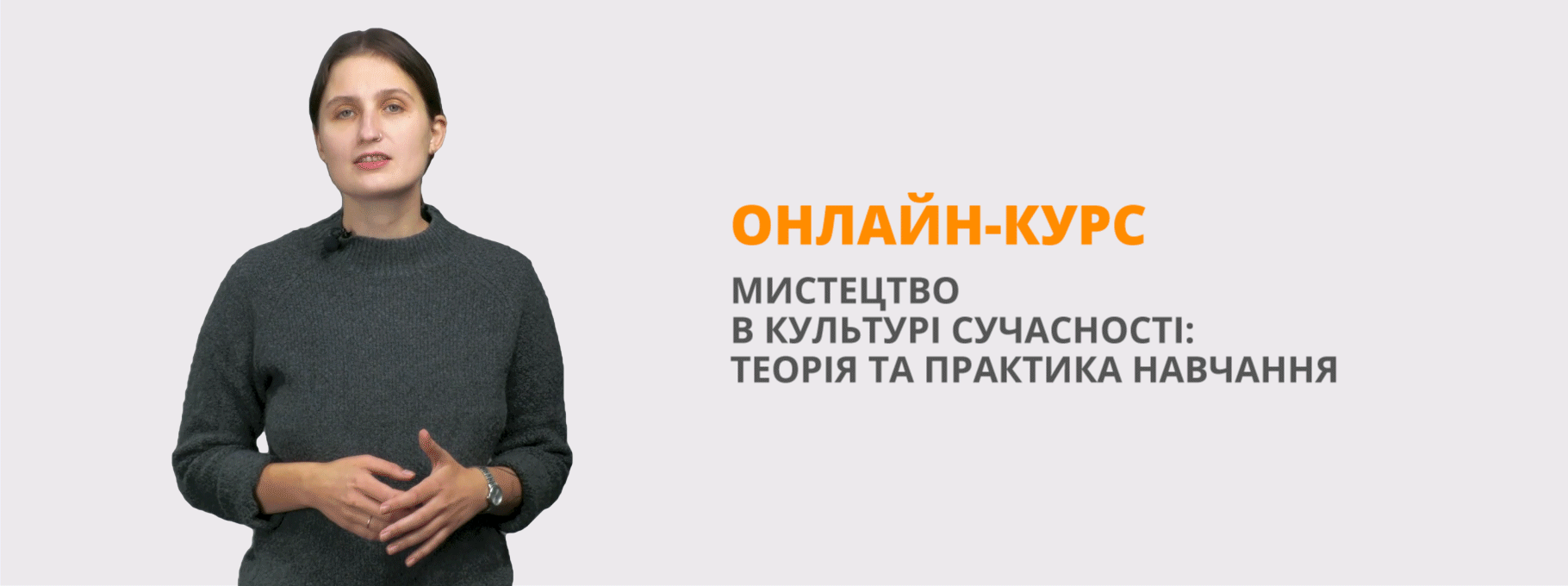Умовні речення І та ІІ типу (First and Second Conditionals)
1
План-конспект уроку
(за підручником з англійської мови для 10 класів Л. В. Калініна, І. В. Самойлюкевич “English 10”, м. Київ, видавництво «Генеза», 2018 р.
Урок № 20
Дата: 11.10.2021
Клас: 10
Тема: Харчування
Тема уроку: Умовні речення І та ІІ типу (First and Second Conditionals)
Задачі уроку:
- Вивчення нових граматичних конструкцій та повторення вивченого матеріалу за минулу тему
- Повторення вживання ЛО за темою у мовленні
- Розвиток навичок говоріння, вміння порівнювати та аналізувати
- Виховання культури харчування учнів
Очікувані результати: учні вміють застосовувати ЛО та граматичні конструкції з теми у мовленні, висловлюватися про типи їжі, працювати з іншомовним матеріалом, розуміють іншомовне мовлення.
Обладнання: підручник, робочий зошит, роздаткові матеріали, візуальні матеріали, дошка.
Хід уроку:
І. Початок уроку
1. Привітання
- Good morning, children! I am glad to see you.
- How are you today?
- (We are fine, thank you.)
- Sit down, please.
2. Повідомлення теми та цілей уроку:
T: Today we’re going to talk about the topic Food; we are going to revise the words we’ve learnt, learn some new ones, and develop our speaking skills. The main aim of our lesson is a grammar topic. It is the revising of 0 and I Conditionals and learning the Second Conditional. Let’s begin!
3. Уведення в іншомовну атмосферу. (Warming up)
T.: To begin with, let’s remember some important things about British meals:
1. How many meals do Britains and Ukrainians have?
2. When do Britains and Ukrainians have main course?
3. What types of food does the main course contain?
T.: Let’s remember what kinds of food are haelfy or not. This task is about revising vocabulary about “Food”. On the blackboard you see pictures and your task is to devise and name types of food.

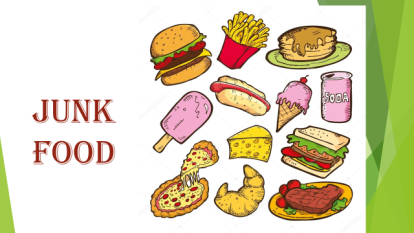
ІІ. Основна частина уроку
- Перевірка домашнього завдання. (Check on Homework).
T.: Now we check your homework. At home you did some exercises in your workbooks.
- Пояснення нового та повторення вивченого граматичного матеріалу.
а) Повторення вивченого матеріалу:
T.: As I have said at the beginning of the lesson, we’ve got some new grammar today. It is the continuation of the topic Conditional sentences.
First of all let`s remember, what is Conditional sentences?
How many types of conditional sentences do you know?
Conditionals describe the result of a certain condition.
The if clause tells you the condition (If you study hard) and the main clause tells you the result (you will pass your exams). The order of the clauses does not change the meaning.
If you study hard, you will pass your exams.
You will pass your exams if you study hard.
Conditional sentences are often divided into different types.
Zero conditional
We use the zero conditional to talk about things that are generally true, especially for laws and rules.
If I drink too much coffee, I can't sleep at night.
Ice melts if you heat it.
When the sun goes down, it gets dark.
The structure is: if/when + present simple >> present simple.
First conditional
We use the first conditional when we talk about future situations we believe are real or possible.
If it doesn't rain tomorrow, we'll go to the beach.
Arsenal will be top of the league if they win.
When I finish work, I'll call you.
In first conditional sentences, the structure is usually:
if/when + present simple >> will + infinitive.
It is also common to use this structure with unless, as long as, as soon as or in case instead of if.
I'll leave as soon as the babysitter arrives.
I don't want to stay in London unless I get a well-paid job.
I'll give you a key in case I'm not at home.
You can go to the party, as long as you're back by midnight.
b) Перевірка повтореного матеріалу:
T.: Before starting new rule, let`s check up your knowledges. You have exercises, which are on your desks. Put them and work all together!
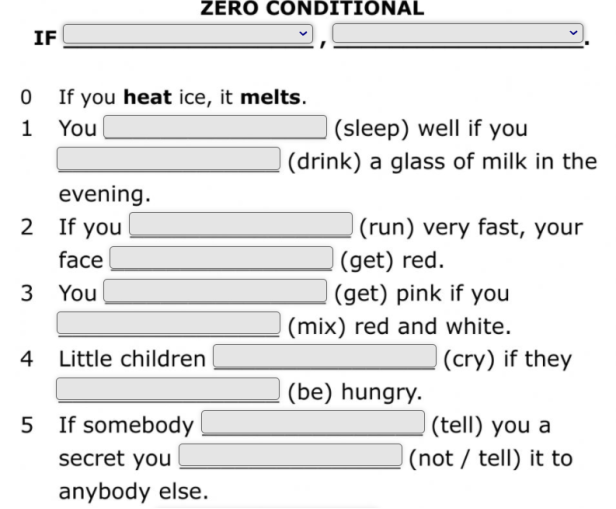
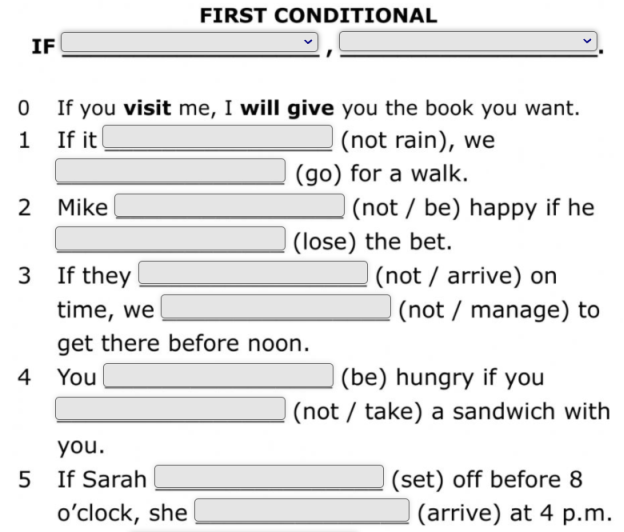
Checking exercises. (Перевірка вправ)
с) Пояснення нового матеріалу:
T.: Second conditional
The second conditional is used to imagine present or future situations that are impossible or unlikely in reality.
If we had a garden, we could have a cat.
If I won a lot of money, I'd buy a big house in the country.
I wouldn't worry if I were you.
The structure is usually: if + past simple >> + would + infinitive.
When if is followed by the verb be, it is grammatically correct to say if I were, if he were, if she were and if it were. However, it is also common to hear these structures with was, especially in the he/she form.
If I were you, I wouldn't mention it.
If she was prime minister, she would invest more money in schools.
He would travel more if he was younger.
b) Перевірка повтореного матеріалу:
T.: We know the theory quite well so it’s high time to do some exercises:
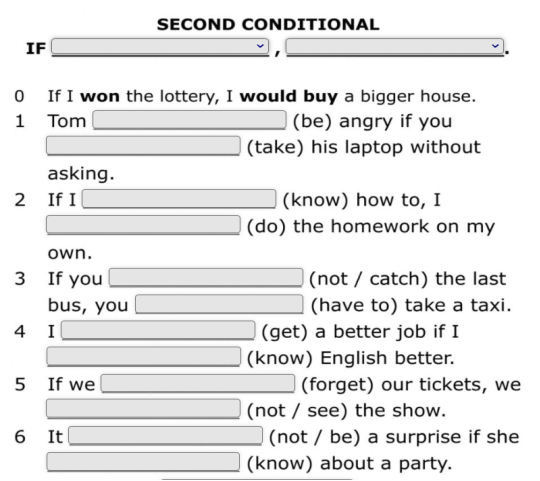
Checking exercise. (Перевірка вправи)
ІІІ. Завершальна частина уроку. (Підсумки. Домашнє завданння. Оцінювання.) (Summarizing)
Вчитель робить висновки. Дає домашнє завдання + пояснення та виставляє оцінки.
T.: Well, it was my pleasure to work with you today. You worked very hard. Tell me, what new have you learnt?
Your home assignment is _____________________________________________
T.: Your marks are … Have a nice day! Good-bye!


про публікацію авторської розробки
Додати розробку
